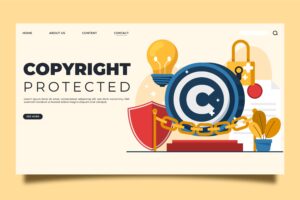Personality Rights and Legal Protection in India
What are personality rights, and how does Indian law protect them?
Background of the Case
An interim application was filed in a Commercial Suit instituted by Asha Bhosle, seeking an injunction to restrain Defendants 1 to 6 from infringing on her copyright and performer’s rights, as well as misappropriating her Personality Rights. The matter was heard by a Single Judge Bench of the Bombay High Court, which observed that unauthorised use of Asha Bhosle’s persona amounted to a violation of her Personality Rights. Consequently, the Court granted a temporary injunction in favour of Asha Bhosle and ordered the removal of any violative content, along with the blocking of infringing websites, platforms, and YouTube channels.
Judicial Precedents Relied Upon
The Court relied on the decisions in Arijit Singh v. Codible Ventures LLP, 2024 SCC OnLine Bom 2445 and Aishwarya Rai Bachchan v. Aishwaryaworld.com, 2025 SCC OnLine Del 5943, which address issues surrounding the protection of celebrity rights and the unauthorised use of their personas.
Observations of the Court
It was observed that Defendants 1, 2, and 5 were unauthorisedly utilising Asha Bhosle’s personality rights. The Court noted that providing AI tools that enable the conversion of any voice into that of a celebrity without permission constitutes a violation of the celebrity’s personality rights. These tools allow for the unauthorised appropriation and manipulation of a celebrity’s voice—a crucial aspect of their identity and public persona. The Court further stated that such technological exploitation infringes upon an individual’s right to control and protect their likeness and voice, undermining their ability to prevent commercial or deceptive uses of their identity.
Personality Rights: Meaning and Legal Protection in India
Definition and Coverage
Personality rights in India are primarily covered under the Copyright Act, 1957, specifically within the definition of Performer’s Rights. Section 38 of the Act states that when a performer appears or engages in any performance, they are granted a special right known as the “performer’s right” in relation to that performance. This right subsists for fifty years from the beginning of the calendar year following the year in which the performance is made.
Exclusive Rights of Performers
Section 38A outlines the exclusive rights of performers. Subject to the provisions of the Act, a performer has the exclusive right to do or authorise the following acts in respect of the performance or any substantial part thereof:
- Make a sound or visual recording of the performance, including reproduction in any material form and storing it in any medium by electronic or other means;
- Issue copies of the performance to the public, excluding copies already in circulation;
- Communicate the performance to the public;
- Sell, offer for sale, or give on commercial rental any copy of the recording;
- Broadcast or communicate the performance to the public, except where already broadcast.
If the performer has consented in writing to the inclusion of their performance in a cinematograph film, they may not object to the enjoyment by the producer of the performer’s right in that film, unless a contract states otherwise. Nevertheless, the performer is entitled to royalties for the commercial use of their performances.
Moral Rights of Performers
Section 38B grants moral rights to performers, allowing them to:
- Claim to be identified as the performer of their performance, except where omission is dictated by the manner of use;
- Restrain or claim damages in respect of any distortion, mutilation, or modification of their performance that would be prejudicial to their reputation.
Impact of AI Tools on Personality Rights
AI tools that enable the conversion of any voice into that of a celebrity or an individual without their permission constitute a violation of personality rights, as they allow for the unauthorised use and manipulation of a key component of a celebrity’s or person’s identity.
